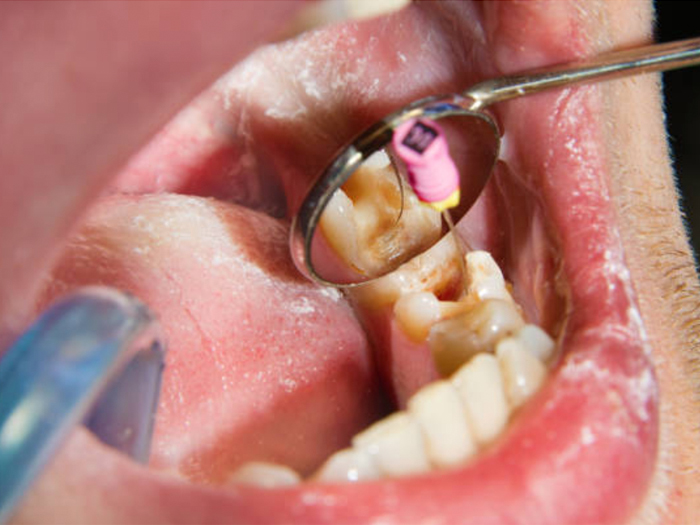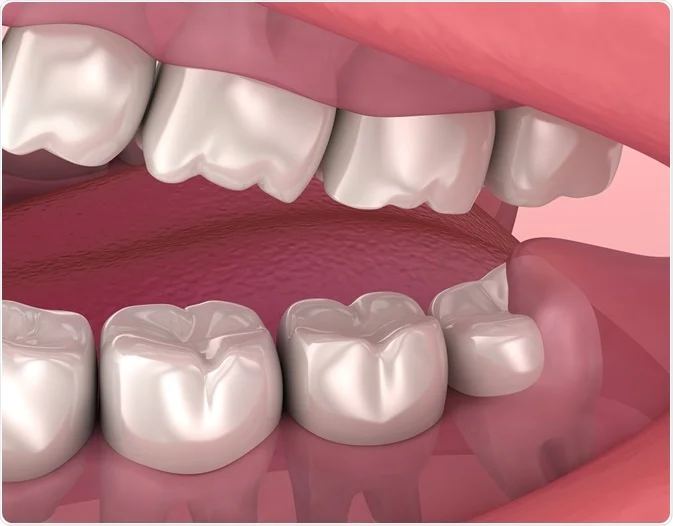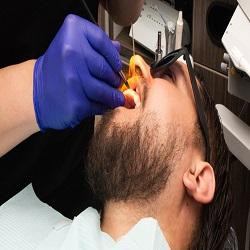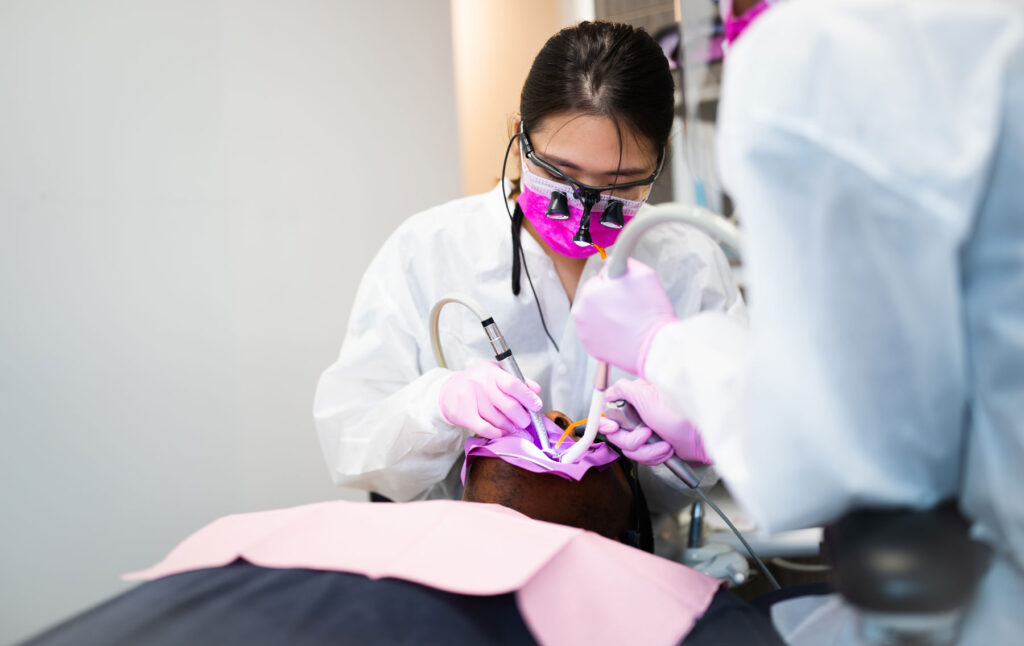Until recently, if you had a badly decayed or infected tooth, you couldn’t save it. You had no choice but to yank it out. If you didn’t, an abscess formed on the gum. As it accumulated toxins, it caused pain and, if left long enough, could even damage your jawbone. When the abscess broke open, it released its collected poisons into your bloodstream, often causing you to become violently ill. Luckily, the advances in today’s technology allow the dentist to focus on repairing and saving your teeth. Root Canal Treatment is the preferred procedure to accomplish that.
What is root canal therapy?
Neither the nerve nor the pulp is vital to a tooth’s health once it has pushed through the gums and fully developed. Therefore, the dentist can pull out a tooth’s diseased pulp (soft tissue containing blood vessels and nerves) without hurting the tooth. In root canal therapy, that is exactly what he does – cleans out the root, but he does not remove the tooth. If the infection is severe or you have time regarding issues, may visit the Dentist Open On Saturday Near Me.
Procedure:
The critical part of the root canal procedure is for the dentist to be sure he removes all of the decay and infection. He/She starts by drilling a hole through the crown of the tooth to access the pulp chamber. He/She then pulls out the pulp, which fills the root(s) and the canal(s) from the top of the pulp chamber to the tip of the root anchored in the jawbone. His goal is to clean out all pulp, dead nerve(s), and bacteria. The emergency dentist will put medication in the emptied root so it will kill any remaining bacteria until you return for your final appointment.
When you return to his office, the dentist will fill the cleaned-out tooth with a rubber-like material that will fill the pulp chamber and every branch of each canal in the root(s). He then permanently seals it in with antibacterial cement so bacteria are unable to enter the tooth in the future. Lastly, the dentist caps the now decay-free tooth with a crown, usually made of porcelain or metal depending upon where it is in the mouth. The crown protects the tooth and restores its chewing power.
People often cringe when the dentist decides a root canal is necessary. In the past, the procedure had a reputation for being painful. Nowadays, however, modern technology and improved anesthetics mean most patients do not feel pain at the dentist’s office. Instead of gripping the dental chair in abject fear, patients are relaxed and watching movies or listening to music. The tooth may feel sensitive for a couple of days after treatment, especially if it had been infected. This minimal discomfort is usually relieved with over-the-counter painkillers like acetaminophen or aspirin.

Is Root Canal Painful?
A root canal doesn’t have to be a scary procedure if you know it won’t be painful. If you have an abscessed tooth, call an Emergency Dentist Near Me today before it can cause any further damage. If his diagnosis is a root canal, ask all of your questions and express any concerns. And be thankful that the tooth can be saved.
Most teeth repaired with a root canal will last your lifetime, so it is a costly investment well worth protecting. Once the root canal is completed, commit to Root Canal After Care includes brushing and flossing, and continue to see your dentist on a regular twice-a-year schedule.







